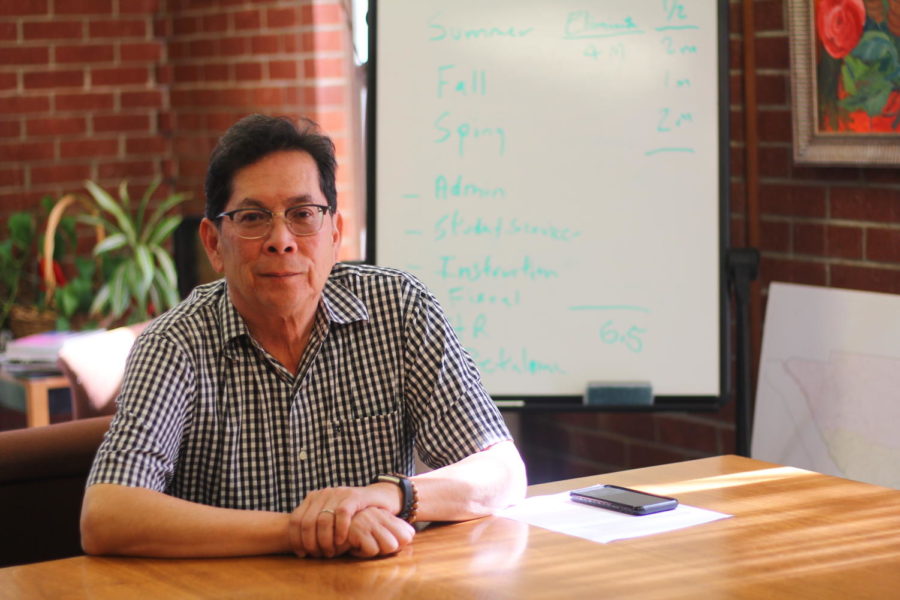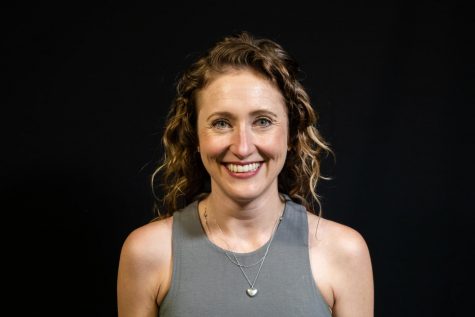Santa Rosa Junior College President Dr. Frank Chong on Thursday announced new measures intended to protect the JC in the event of future armed-intruder incidents.
The improvements include the installation of new locks, the scheduling of active shooter trainings and drills, the use of a new alert broadcast system, and the establishment of a standing committee dedicated to campus safety and preparedness.
This should come as welcome news to anthropology instructor Nikki Slovak who presented her concerns about campus safety — including a “lack of locks on offices and classroom doors,” a need for “instant notification of crime,” and the implementation of lockdown drills — in a formal presentation to the Academic Senate on Oct. 17, 2018.
She asked for SRJC to “develop an institutional response to [her] concerns” and “implement these solutions in a timely manner.”
“We’re so good at talking on this campus, but we don’t do a lot in regards to following through,” she said. “This isn’t rocket science at this point. [These events] happen, unfortunately, way too frequently. And there are best practices we can borrow from and adapt to our campus.”
Demands like hers coupled with last week’s report of an armed suspect in Analy Hall pushed the administration into action.
New locks on interior and exterior doors
Beginning immediately, electronic locks will be installed on exterior doors so district police can remotely lock down buildings; interior doors will see the installation of manual locks allowing individuals to secure doors from the inside.
According to Chong, installation will commence in Santa Rosa’s Emeritus Hall “because that’s the building that has the most doors without locks.” The manual locks will be installed in Emeritus by April 30, and he pledged the installations will continue until “all buildings across all SRJC campuses are upgraded.”
“There is no deadline for when the remainder of campus buildings will receive their new locks due to [the project’s] extremely large scale and scope,” said Erin Bricker, director of district and community relations. “Dr. Chong has asked his leadership team to make this a top priority.”
The electronic and manual locks will be implemented in any new construction or renovation, but temporary buildings, like those in Analy Village, will only receive manual locks. Briker said electronic locks will not be installed in temporary buildings because they are “scheduled for eventual removal.”
PA-style alert system for classrooms
In addition to new locks, SRJC will implement an alert system called InformaCast to broadcast messages across the district, an additional layer added to the existing email and text system used for alerting faculty, staff and students individually.
The InformaCast system permits visual messages be sent to a classroom’s computer screen and audio messages be broadcast to a classroom’s hard-wired phone.
SRJC Information Technology installed the InformaCast system last year and ran a manual test in December, but District Police did not use InformaCast during Thursday’s incident.
Bricker said the next step is “to integrate it into our existing SRJC Alerts system, which our IT team has been working on since the successful test.”
The JC plans to go live with the system by mid-March.
Active shooter trainings and drills
In an effort to help faculty and staff feel more confident in emergency situations, Chong says the district police “will offer trainings directly to departments upon request, which can be tailored to include evacuation preparations, shelter-in-place direction and information specific to a given department’s needs and location.”
According to Chong, SRJC District Police Chief Robert Brownlee and Senior Dean of Students Robert Ethington conducted a training exercise with the science department about what to do in dealing with disruptive students and what to do in an emergency.
“We’re committed to systematically go to different segments of the college to educate and inform people about what strategies you need to do in different circumstances,” Chong said.
But he notes that preparing students is important, too.
At 11:30 a.m. and 5 p.m. on Wednesday, Feb. 6, students and employees can attend the district police’s next active shooter training. The location has yet to be determined. Chong advises students and staff check their email for details
Safety Subcommittee
In an effort to keep the spotlight on campus safety beyond one-time installation of locks, for example, Chong approved the formation of a Safety Work Group he said will “review the college’s policies, procedures and practices related to emergency response and safety” in an ongoing fashion.
The group will include faculty, staff, administrators and students.
Brenda Flyswithhawks, chair of the psychology and behavioral sciences department who is expected to co-chair the subcommittee, said the group is slated to meet twice a month, with its first meeting to be held Monday, Feb. 4.
The first meeting will focus on organizing the committee and identifying its goals, although Flyswithhawks said she made clear “this is a working committee.” She fully expects each member to bring ideas and feedback and be prepared for serious but respectful discussion.
The group will ultimately make recommendations to Chong’s President’s Consultation Committee through the District Health & Safety Committee; any plans could then be implemented across both campuses.
“I think we learn from every one of these situations. You always do,” she said. “And if you don’t, then you’re not paying attention.”






Min Sun • Jan 26, 2019 at 8:08 am
The science department should be trained in student-centered learning initiatives that acknowledge inclusion not disciplinary protocol